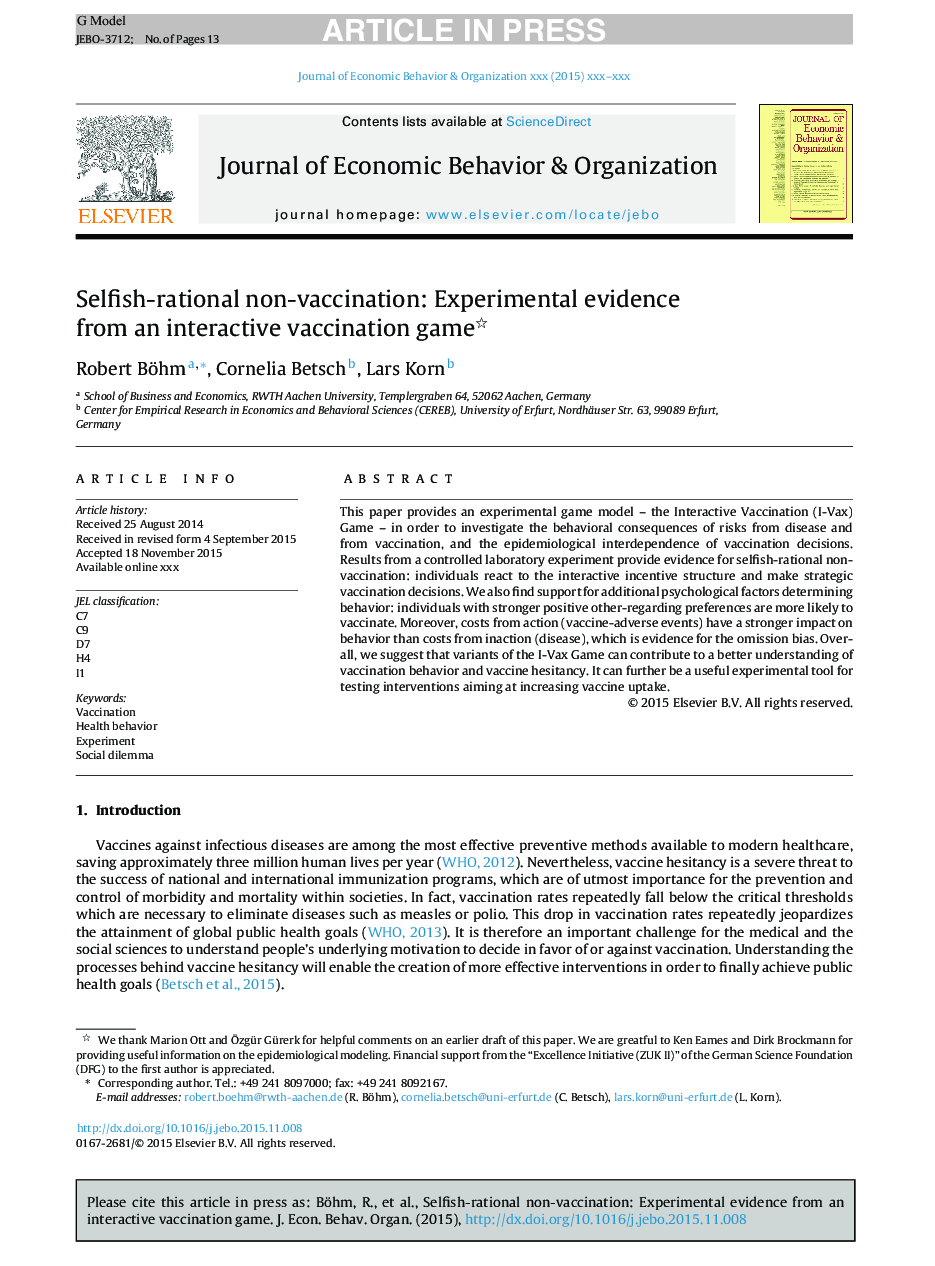| Article ID | Journal | Published Year | Pages | File Type |
|---|---|---|---|---|
| 5034546 | Journal of Economic Behavior & Organization | 2016 | 13 Pages |
Abstract
This paper provides an experimental game model - the Interactive Vaccination (I-Vax) Game - in order to investigate the behavioral consequences of risks from disease and from vaccination, and the epidemiological interdependence of vaccination decisions. Results from a controlled laboratory experiment provide evidence for selfish-rational non-vaccination: individuals react to the interactive incentive structure and make strategic vaccination decisions. We also find support for additional psychological factors determining behavior: individuals with stronger positive other-regarding preferences are more likely to vaccinate. Moreover, costs from action (vaccine-adverse events) have a stronger impact on behavior than costs from inaction (disease), which is evidence for the omission bias. Overall, we suggest that variants of the I-Vax Game can contribute to a better understanding of vaccination behavior and vaccine hesitancy. It can further be a useful experimental tool for testing interventions aiming at increasing vaccine uptake.
Related Topics
Social Sciences and Humanities
Economics, Econometrics and Finance
Economics and Econometrics
Authors
Robert Böhm, Cornelia Betsch, Lars Korn,
